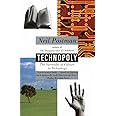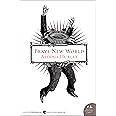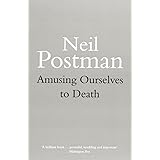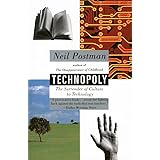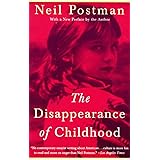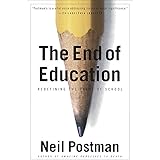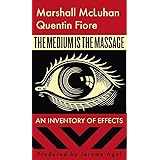
Enjoy fast, free delivery, exclusive deals, and award-winning movies & TV shows with Prime
Try Prime
and start saving today with fast, free delivery
Amazon Prime includes:
Fast, FREE Delivery is available to Prime members. To join, select "Try Amazon Prime and start saving today with Fast, FREE Delivery" below the Add to Cart button.
Amazon Prime members enjoy:- Cardmembers earn 5% Back at Amazon.com with a Prime Credit Card.
- Unlimited Free Two-Day Delivery
- Streaming of thousands of movies and TV shows with limited ads on Prime Video.
- A Kindle book to borrow for free each month - with no due dates
- Listen to over 2 million songs and hundreds of playlists
- Unlimited photo storage with anywhere access
Important: Your credit card will NOT be charged when you start your free trial or if you cancel during the trial period. If you're happy with Amazon Prime, do nothing. At the end of the free trial, your membership will automatically upgrade to a monthly membership.
Buy new:
$11.69$11.69
Ships from: Amazon.com Sold by: Amazon.com
Buy used: $8.99





Download the free Kindle app and start reading Kindle books instantly on your smartphone, tablet, or computer - no Kindle device required.
Read instantly on your browser with Kindle for Web.
Using your mobile phone camera - scan the code below and download the Kindle app.

 Audible sample Sample
Audible sample Sample 


Amusing Ourselves to Death: Public Discourse in the Age of Show Business Paperback – December 27, 2005
Purchase options and add-ons
"It's unlikely that Trump has ever read Amusing Ourselves to Death, but his ascent would not have surprised Postman.” -CNN
Originally published in 1985, Neil Postman’s groundbreaking polemic about the corrosive effects of television on our politics and public discourse has been hailed as a twenty-first-century book published in the twentieth century. Now, with television joined by more sophisticated electronic media—from the Internet to cell phones to DVDs—it has taken on even greater significance. Amusing Ourselves to Death is a prophetic look at what happens when politics, journalism, education, and even religion become subject to the demands of entertainment. It is also a blueprint for regaining control of our media, so that they can serve our highest goals.
“A brilliant, powerful, and important book. This is an indictment that Postman has laid down and, so far as I can see, an irrefutable one.” –Jonathan Yardley, The Washington Post Book World
- Print length208 pages
- LanguageEnglish
- PublisherPenguin Books
- Publication dateDecember 27, 2005
- Dimensions0.6 x 5.1 x 7.7 inches
- ISBN-10014303653X
- ISBN-13978-0143036531
The Amazon Book Review
Book recommendations, author interviews, editors' picks, and more. Read it now.
Frequently bought together

Similar items that may deliver to you quickly
 Each medium, like language itself, makes possible a unique mode of discourse by providing a new orientation for thought, for expression, for sensibility.Highlighted by 2,838 Kindle readers
Each medium, like language itself, makes possible a unique mode of discourse by providing a new orientation for thought, for expression, for sensibility.Highlighted by 2,838 Kindle readers And our languages are our media. Our media are our metaphors. Our metaphors create the content of our culture.Highlighted by 2,645 Kindle readers
And our languages are our media. Our media are our metaphors. Our metaphors create the content of our culture.Highlighted by 2,645 Kindle readers We are all, as Huxley says someplace, Great Abbreviators, meaning that none of us has the wit to know the whole truth, the time to tell it if we believed we did, or an audience so gullible as to accept it.Highlighted by 2,474 Kindle readers
We are all, as Huxley says someplace, Great Abbreviators, meaning that none of us has the wit to know the whole truth, the time to tell it if we believed we did, or an audience so gullible as to accept it.Highlighted by 2,474 Kindle readers
Editorial Reviews
Review
“All I can say about Neil Postman’s brilliant Amusing Ourselves to Death is: Guilty As Charged.” –Matt Groening, Creator of The Simpsons
“As a fervent evangelist of the age of Hollywood, I publicly opposed Neil Postman’s dark picture of our media-saturated future. But time has proved Postman right. He accurately foresaw that the young would inherit a frantically all-consuming media culture of glitz, gossip, and greed.” –Camille Paglia
“A brilliant, powerful, and important book. This is an indictment that Postman has laid down and, so far as I can see, an irrefutable one.” –Jonathan Yardley, The Washington Post Book World
About the Author
Excerpt. © Reprinted by permission. All rights reserved.
Table of Contents
ABOUT THE AUTHORS
Title Page
Copyright Page
Introduction
Foreword
Part I.
Chapter 1. - The Medium Is the Metaphor
Chapter 2. - Media as Epistemology
Chapter 3. - Typographic America
Chapter 4. - The Typographic Mind
Chapter 5. - The Peek-a-Boo World
Part II.
Chapter 6. - The Age of Show Business
Chapter 7. - “Now ... This”
Chapter 8. - Shuffle Off to Bethlehem
Chapter 9. - Reach Out and Elect Someone
Chapter 10. - Teaching as an Amusing Activity
Chapter 11. - The Huxleyan Warning
Notes
Bibliography
Index
Acclaim for Neil Postman’s Amusing Ourselves to Death
“As a fervent evangelist of the age of Hollywood, I publicly opposed Neil Postman’s dark picture of our media-saturated future. But time has proved Postman right. He accurately foresaw that the young would inherit a frantically all-consuming media culture of glitz, gossip, and greed.”
—Camille Paglia
“A brillant, powerful and important book. This is an indictment that Postman has laid down and, so far as I can see, an irrefutable one.”
—Jonathan Yardley, The Washington Post Book World
“He starts where Marshall McLuhan left off, constructing his arguments with the resources of a scholar and the wit of a raconteur.”
—The Christian Science Monitor
“This comes along at exactly the right moment.... We must confront the challenge of his prophetic vision.”
—Jonathan Kozol
ABOUT THE AUTHORS
For the last third of the twentieth century, Neil Postman was one of America’s foremost social critics and education and communications theorists, and his ideas and accessibility won him an international following. An influential and revered teacher, he was professor for more than forty years at New York University, where he founded the renowned Media Ecology program. Blessed with an unusually far-reaching mind, he authored more than twenty books, producing major works on education(Teaching as a Subversive Activity, The End of Education), childhood (The Disappearance of Childhood), language(Crazy Talk, Stupid Talk), news (How to Watch TV News, with Steve Powers) and technology’s impact on culture(Technopoly). Amusing Ourselves to Death remains his most reverberating and widely read book, translated into more than a dozen languages. He was educated at the State University of New York at Fredonia and Columbia University. He died in October 2003, at the age of seventy-two.
Andrew Postman, Neil’s son, is the author of five books, including the novel Now I Know Everything. For several years he was a monthly columnist for Glamour and his work has appeared inThe New York Times, The Washington Post, and New York Magazine, among numerous publications.
PENGUIN BOOKS
Published by the Penguin Group
Penguin Group (USA) Inc., 375 Hudson Street, New York, New York 10014, U.S.A.
Penguin Group (Canada), 90 Eglinton Avenue East, Suite 700, Toronto, Ontario,
Canada M4P 2Y3 (a division of Pearson Penguin Canada Inc.)
Penguin Books Ltd, 80 Strand, London WC2R ORL, England
Penguin Ireland, 25 St Stephen’s Green, Dublin 2, Ireland
(a division of Penguin Books Ltd)
Penguin Group (Australia), 250 Camberwell Road, Camberwell, Victoria 3124,
Australia (a division of Pearson Australia Group Pty Ltd)
Penguin Books India Pvt Ltd, 11 Community Centre, Panchsheel Park,
New Delhi - 110 017, India
Penguin Group (NZ), 67 Apollo Drive, Rosedale, North Shore 0632, New Zealand
(a division of Pearson New Zealand Ltd)
Penguin Books (South Africa) (Pty) Ltd, 24 Sturdee Avenue,
Rosebank, Johannesburg 2196, South Africa
Penguin Books Ltd, Registered Offices: 80 Strand, London WC2R ORL, England
First published in the United States of America by Viking Penguin Inc. 1985
Published in Penguin Books 1986
This edition with an introduction by Andrew Postman published 2006
Introduction copyright © Andrew Postman, 2005
All rights reserved
Grateful acknowledgment is made to The New York Times Company for permission to reprint from “Combining TV, Books, Computers” by Edward Fiske, which appeared in the August 7, 1984 issue ofThe New York Times. Copyright © 1984 by The New York Times Company.
A section of this book was supported by a commission from the Annenberg Scholars Program, Annenberg School of Communications, University of Southern California. Specifically, portions of chapters six and seven formed part of a paper delivered at the Scholars Conference, “Creating Meaning: Literacies of our Time,” February 1984.
eISBN : 978-1-101-04262-5
The scanning, uploading and distribution of this book via the Internet or via any other means without the permission of the publisher is illegal and punishable by law. Please purchase only authorized electronic editions, and do not participate in or encourage electronic piracy of copyrighted materials. Your support of the author’s rights is appreciated.
Introduction to the Twentieth Anniversary Edition
Now this?
A book of social commentary published twenty years ago? You’re not busy enough writing e-mails, returning calls, downloading tunes, playing games (online, PlayStation, Game Boy), checking out Web sites, sending text messages, IM’ing, Tivoing, watching what you’ve Tivoed, browsing through magazines and newspapers, reading new books—now you’ve got to stop and read a book that first appeared in the last century, not to mention the last millennium? Come on. Like your outlook on today could seriously be rocked by this plain-spoken provocation about The World of 1985, a world yet to be infiltrated by the Internet, cell phones, PDAs, cable channels by the hundreds, DVDs, call-waiting, caller ID, blogs, flat-screens, HDTV, and iPods? Is it really plausible that this slim volume, with its once-urgent premonitions about the nuanced and deep-seated perils of television, could feel timelytoday, the Age of Computers ? Is it really plausible that this book about how TV is turning all public life (education, religion, politics, journalism) into entertainment; how the image is undermining other forms of communication, particularly the written word; and how our bottomless appetite for TV will make content so abundantly available, context be damned, that we’ll be overwhelmed by “information glut” until what is truly meaningful is lost and we no longer care what we’ve lost as long as we’re being amused.... Can such a book possibly have relevance to you and The World of 2006 and beyond?
I think you’ve answered your own question.
Product details
- Publisher : Penguin Books; Anniversary edition (December 27, 2005)
- Language : English
- Paperback : 208 pages
- ISBN-10 : 014303653X
- ISBN-13 : 978-0143036531
- Item Weight : 2.31 pounds
- Dimensions : 0.6 x 5.1 x 7.7 inches
- Best Sellers Rank: #6,718 in Books (See Top 100 in Books)
- Customer Reviews:
About the author

Neil Postman was chairman of the department of communication arts at New York University. He passed away in 2003.
Customer reviews
Customer Reviews, including Product Star Ratings help customers to learn more about the product and decide whether it is the right product for them.
To calculate the overall star rating and percentage breakdown by star, we don’t use a simple average. Instead, our system considers things like how recent a review is and if the reviewer bought the item on Amazon. It also analyzed reviews to verify trustworthiness.
Learn more how customers reviews work on AmazonReviews with images
-
Top reviews
Top reviews from the United States
There was a problem filtering reviews right now. Please try again later.
Amusing Ourselves To Death: Public Discourse In the Age of Showbusiness by Neil Postman is a book outside my usual reading patterns, but, I am glad to say I enjoyed this book, and can even call it an eye-opener, a paradigm shifter, and even among the most compelling arguments I've ever read to think carefully and cautiously about the direction our culture is headed. If you are a Cinema Media Arts major, a Business Marketing major, a Theater Arts major, a History major, or just a person that wants to think about how media affects us, this book is a mandatory read.
Neil Postman argues that the things we love: technology, television, radio, computers, and the internet, all things we are entertained by, have and will turn our society into a vacuum of "absurdity" and "irrelevance" if they go unchecked.
"Orwell warns that we will be overcome by an externally imposed oppression. But in Huxley's vision, no Big Brother is required to deprive people of their autonomy, maturity and history. As he saw it, people will come to love their oppression, to adore the technologies that undo their capacities to think."
If you don't agree, consider these basic questions: When was the last time you had a "deep" conversation? How often do you discuss "ideas" as opposed to "trivialities" with your friends? Does "public discourse" (conversations) seem more emotion-based or logic-based? Why in the world is this happening, because, historically speaking, this is not normal.
"The Medium Is The Message"
If you've ever listened to Pink Floyd's Amused To Death, or better yet, Switchfoot's Selling The News, both of those songs are based off of this book, showing the importance of this book, at least to modern alternative and rock music bands. Both these songs mention the phrase: "The medium is the message".
In other words, the medium (tool) that our culture uses to communicate (Newspapers or TV) with ourselves and with each other will determine the content and quality of the message (of what is being communicated). In short, the form of communication determines the content and quality of what is being communicated. There are largely three cultural mediums that cultures have used to communicate, 1.) speech-centered (think B.C. when the printing press wasn't around and all people could do was tell stories and communicate by word of mouth), 2.) print-centered (think books, print newspapers, pamphlets, etc.), and 3.) image-centered (think televisions, the internet, and magazines...)
A Monumental Shift
In our age, we are experiencing a monumental shift in "mediums" of communication, and as the phrase goes, the "message" is being changed as well. The "Age of Exposition" as Postman calls it, which was America from it's conception to the 1960′s, was marked by a national fervor to read books. The "Age of Show-business" as Postman calls it, is marked by a national fervor to watch images on a screen.
Consider the act of reading, how it encourages "rationality" and how confronting a page of symbols requires a person to "understand". It demands solemn response rather than impulsive reaction. This is so, mainly because,
"to engage the written word means to follow a line of thought, which requires considerable powers of classifying, inference-making and reasoning. It means to uncover lies, confusions, and over-generalizations, to detect abuses of logic and common sense. It also means to weigh ideas, to compare and contrast assertions, to connect one generalization to another..."
Reading forms your mind like a potter forms clay, into a logical, reasoning, discerning, deducing, powerful machine.
In the America of the 1800′s people would listen to political speeches, such as the Lincoln-Douglas Debates which lasted for seven hours at time, just for fun, and it wasn't uncommon to find a crowd of people surrounding a person giving an intellectual oration on a dead tree stump. Lecture halls spanned the 50 states where throngs of people would line up and pay money, sometimes upwards of $200 to hear public intellectuals of the day, such as Ralph Waldo Emerson, for hours, and they did that just like we watch movies at a theater today. Clearly our intention-span has diminished a great deal, and our focus has turned from intellectuality to entertainment, almost 180 degrees.
The TV
The introduction of the TV has affected the minds and hearts of our culture greatly. Consider the difference between watching TV and reading a book, how watching short snippets of presentations, where the hook comes around and around to entice our emotions, while reading demands sitting for long periods of time, where the author means everything he says and is appealing to our logic and reason. TV pulls us from the past to a perpetual present where it sells you each second you're watching by "appealing to your passions", reading pulls us from the present to the wide scope of history, past, present, and future and sells us not with passions but with sound arguments and logical appeals. The abdication of the second means a culture largely driven by emotions, passions, and enticing images rather than sound arguments, logic, and careful reasoning.
"With television, we vault ourselves into a continuous, incoherent present."
Christianity
What really caught my interest was Postman's analysis of the affect of Television on religion, particularly Christianity. The Christian Revivals of the early days of America were headed by religious intellectual giants like Jonathan Edwards and George Whitefield, but the religious Revivals of today are led by religious show entertainers with shallow doctrines and emotional appeals.
"It would be a serious mistake to think of Billy Graham or any other television revivalist as a latter-day Jonathan Edwards or Charles Finney. Edwards was one of the most brilliant and creative minds ever produced by America. His contribution to aesthetic theory was almost as important as his contribution to theology. His interests were mostly academic; he spent long hours each day in his study. He did not speak to his audiences extemporaneously. He read his sermons, which were tightly knit and closely reasoned expositions of theological doctrine...religious thought and institutions in America were dominated by an austere, learned, and intellectual form of discourse that is largely absent from religious life today."
"I believe I am not mistaken in saying that Christianity is a demanding and serious religion. When it is delivered as easy and amusing, it is another kind of religion altogether."
Too Much News
Are you tired of reading the news? I am, and I believe Postman is absolutely correct in his analysis that the advent of the telegraph made everything relevant or irrelevant into "news", whether it be Snoop Dog changing his name to Snoop Lion, the reoccurring event that some new celebrity insanity has shaved her head, or the ridiculous name of the baby of some movie actress marriage that only lasts for a year. All news is news whether it is irrelevant to us or not.
"...most of our daily news is inert, consisting of information that gives us something to talk about but cannot lead to any meaningful action."
What Can We Do?
The inevitable question is: What can we do to put a stop to this degeneration of culture?
The answer is simple: Think!
This involves actually reading books, and teaching yourself to analyze rather than just accepting TV. You cannot get by today without reading good books. Reading is the process and practice of ordering, analyzing, discerning, categorizing, and reasoning and you cannot be an intelligent person if you do not have a healthy intake of good challenging books.
"But it is much later in the game now, and ignorance of the score is inexcusable. To be unaware that a technology comes equipped with a program for social change, to maintain that technology is neutral, to make the assumption that technology is always a friend to culture is, at this late hour, stupidity plain and simple."
Is This Just Culture Whining?
One possible objection to reading this book is: isn't this just another person whining about the ills of society and banging their cup against the ground in objection? Fair enough, I asked the same question when reading this book, several times.
Consider how we are adamantly opposed to external slavery as a nation. We broke away from tyranny from the start and we have been a nation of "freedom" and "liberty" ever since. It is not culture whining to decry an externally caused force of tyranny. This is the same tyrrany all the same, it is just disguised as an internal form of slavery, where our desires control us, and our own passions turn our culture into slaves of our own trivialities.
"Everything in our background has prepared us to know and resist a prison when the gates begin to close around us . . . But what if there are no cries of anguish to be heard? Who is prepared to take arms against a sea of amusements? To whom do we complain, and when, and in what tone of voice, when serious discourse dissolves into giggles? What is the antidote to a culture's being drained by laughter?"
In the mid 1800s, Abraham Lincoln and one of his political adversaries (Stephen A. Douglas) used to have public debates that lasted hours. Each participant would get a minimum of an hour of speaking time before the other rose for a rebuttal, and debates could often last upwards of 4 hours. What is even more remarkable is that the audience of regular common people was rapt with attention for the entire affair. Today, politicians are given 1 minute to give an opinion on a major issue and their opponent is expected to keep their rebuttal to 30 seconds.
So, there is a definitive difference in the mainstream intelligence of people from our past in comparison to people today. How did this come to be? Postman posits that it is due to the rise of television as our main source of information gathering. In the 17th and 18th centuries ideas were shared via writing (and if you go back father, to the days of humanity before writing and reading were wide-spread, when ideas were only shared orally, the scholars and politicians of the day were those select men with a knack for oratorical skills.) Postman notes how the first fifteen presidents of the United States most likely wouldn’t have been recognized by their citizens on the street, yet those same citizens could have identified them by their latest speech or piece of distributed writing. Today, things are quite different. Postman wrote this book in the 1980’s when Ronald Reagan was president—a man who was previously a big time Hollywood actor in the 1960s and built a national reputation as someone on the silver screen. Even more recently we endured the presidency of Donald Trump, the former host of a reality television series. Was Donald Trump a good politician? The debate is still out. Is he entertaining? Absolutely—he is the most entertaining politician we have ever had in the age of television and I personally am not surprised at all that he is the most popular politician in the United States right now.
The core argument of Postman’s book is not only that television changed how we receive information, but it changed our entire relationship to information on an epistemological level. Whereas writing is geared towards conceptual thinking, sequential order, careful reasoning, objectivity, and a delayed response, television is meant for entertainment. Television, with its constantly moving pictures and engaging sound effects, is meant to be amusing. When we indulge in TV for entertainment’s sake, sinking into the couch after a hard day’s work to watch our favorite half hour comedy, that is not the TV that Postman is talking about. The TV that has decimated attention spans and amused us to a breaking point is the TV that has infiltrated our religions, our politics, and our education systems. “As a television show, and a good one,” Postman writes, “Sesame Street does not encourage children to love school or anything about school. It encourages them to love television.”
With television’s incorporation of the news cycle, our ways of learning about the world are also stunted. We get a story about the Middle East, and then a minute later we’re hearing about gridlock in the Senate, quickly followed by a story about a dog riding a crocodile in Florida. These are all entertaining stories to be sure, but what do they all have in common? For 99% of us, they have no impact on our daily lives. Do I wish there was less violence in the Middle East? Of course. What can I actually do about it? Essentially nothing. With all the graphic images and sounds coming out of the television screen, however, it is incredibly engaging and I can’t look away!
Television is designed to make everything it touches entertaining, and it has infiltrated our culture so much so that with the advancement of the internet and social media, the trends in this book have only exacerbated. “The form in which ideas are expressed affects what those idea will be,” Postman writes, and I couldn’t agree more. We the people now expect everything in life, whether it be news, politics, science, education, commerce, religion, etc., to entertain us. If it doesn’t, we don’t want it. Personally, I believe that our culture would benefit tremendously from a return to typography—a large part of the reason why I started reading and writing book reviews in the first place. Books are where real education lies, and in my opinion a better education is the way towards a better future. The internet has recently made huge swaths of information readily available (thanks Wikipedia!) so we now must take focus from what we are learning and return focus to how we go about learning it.
Reviewed in the United States on July 8, 2021
In the mid 1800s, Abraham Lincoln and one of his political adversaries (Stephen A. Douglas) used to have public debates that lasted hours. Each participant would get a minimum of an hour of speaking time before the other rose for a rebuttal, and debates could often last upwards of 4 hours. What is even more remarkable is that the audience of regular common people was rapt with attention for the entire affair. Today, politicians are given 1 minute to give an opinion on a major issue and their opponent is expected to keep their rebuttal to 30 seconds.
So, there is a definitive difference in the mainstream intelligence of people from our past in comparison to people today. How did this come to be? Postman posits that it is due to the rise of television as our main source of information gathering. In the 17th and 18th centuries ideas were shared via writing (and if you go back father, to the days of humanity before writing and reading were wide-spread, when ideas were only shared orally, the scholars and politicians of the day were those select men with a knack for oratorical skills.) Postman notes how the first fifteen presidents of the United States most likely wouldn’t have been recognized by their citizens on the street, yet those same citizens could have identified them by their latest speech or piece of distributed writing. Today, things are quite different. Postman wrote this book in the 1980’s when Ronald Reagan was president—a man who was previously a big time Hollywood actor in the 1960s and built a national reputation as someone on the silver screen. Even more recently we endured the presidency of Donald Trump, the former host of a reality television series. Was Donald Trump a good politician? The debate is still out. Is he entertaining? Absolutely—he is the most entertaining politician we have ever had in the age of television and I personally am not surprised at all that he is the most popular politician in the United States right now.
The core argument of Postman’s book is not only that television changed how we receive information, but it changed our entire relationship to information on an epistemological level. Whereas writing is geared towards conceptual thinking, sequential order, careful reasoning, objectivity, and a delayed response, television is meant for entertainment. Television, with its constantly moving pictures and engaging sound effects, is meant to be amusing. When we indulge in TV for entertainment’s sake, sinking into the couch after a hard day’s work to watch our favorite half hour comedy, that is not the TV that Postman is talking about. The TV that has decimated attention spans and amused us to a breaking point is the TV that has infiltrated our religions, our politics, and our education systems. “As a television show, and a good one,” Postman writes, “Sesame Street does not encourage children to love school or anything about school. It encourages them to love television.”
With television’s incorporation of the news cycle, our ways of learning about the world are also stunted. We get a story about the Middle East, and then a minute later we’re hearing about gridlock in the Senate, quickly followed by a story about a dog riding a crocodile in Florida. These are all entertaining stories to be sure, but what do they all have in common? For 99% of us, they have no impact on our daily lives. Do I wish there was less violence in the Middle East? Of course. What can I actually do about it? Essentially nothing. With all the graphic images and sounds coming out of the television screen, however, it is incredibly engaging and I can’t look away!
Television is designed to make everything it touches entertaining, and it has infiltrated our culture so much so that with the advancement of the internet and social media, the trends in this book have only exacerbated. “The form in which ideas are expressed affects what those idea will be,” Postman writes, and I couldn’t agree more. We the people now expect everything in life, whether it be news, politics, science, education, commerce, religion, etc., to entertain us. If it doesn’t, we don’t want it. Personally, I believe that our culture would benefit tremendously from a return to typography—a large part of the reason why I started reading and writing book reviews in the first place. Books are where real education lies, and in my opinion a better education is the way towards a better future. The internet has recently made huge swaths of information readily available (thanks Wikipedia!) so we now must take focus from what we are learning and return focus to how we go about learning it.





